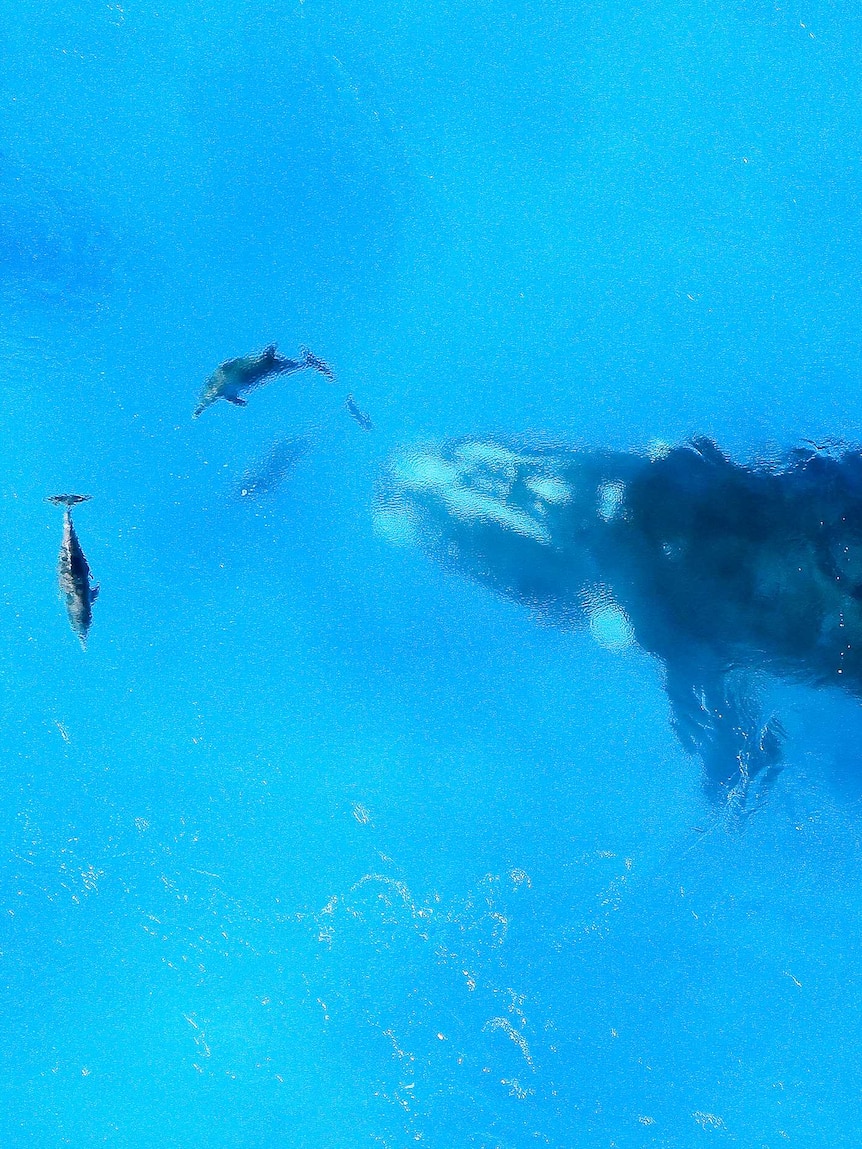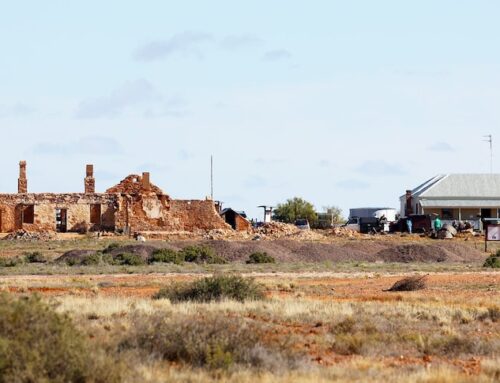A marine conservation group has voiced concerns about a proposed wind farm off the coast of Kingston in South Australia.
Key points:
- A whale conservation group says a proposed offshore wind farm will negatively affect an endangered whale species
- The proposed project is 10kms off the coast of Kingston, South Australia in a federally declared wildlife area
- The proposed windfarm is located in a southern right whale migration and breeding corridor
The proposal was logged in late August by SA Offshore Windfarm PTY LTD, a subsidiary of Australis Energy.
The company is seeking to build 75 wind turbines located 10 kilometres off the coast, which would generate enough energy to power more than 400,000 homes.
It is the first project of its kind for the state.
However, the proposed project is in an area federally declared a Biologically Important Area for the endangered southern right whale.
Impact assessment required
Elizabeth Steele-Collins, a spokesperson for the Encounter Whales, Southern Right Whale Conservation and Protection group said that particular stretch of water is an essential channel in the southern right whale migration and breeding corridor.
“They travel thousands of kilometres to get here, to breed in our warmer water,” Ms Steele-Collins said.
“There are not many nursery areas where the whale mums come to calve.”
Ms Steele said the group had raised its concerns with the federal government.
“The Commonwealth has made a decision, and it is a ‘controlled action’…which involves a higher degree of scrutiny,” she said.
A controlled action declaration means that a full environmental impact assessment will be required before approval.
The species’ population dropped dramatically during the 19th century, when they were hunted to near extinction.
Balance between environment types
Ms Steele-Collins said the conservation group is “all for” renewable, green energy sources but the proposal needs to be considered carefully.
“In this age of climate change, which represents a universal threat to all life, we’re all for anything to minimise the use of fossil fuels,” she said.
The wind farm proposal will be subject to strict environmental protocols, including an environmental impact assessment.
It will also require approval under the Environmental Protection and Biodiversity Conservation Act.
On the company website, SA Offshore Windfarm said it is critical the organisation develop “strategies to ensure that during the construction, operations and decommissioning we benefit the local and national economy without causing harm to the environment”.
SA Offshore Windfarm were contacted for comment but have not replied.
Migration disruption
Recent research by Dr Stuart Johnston from the School of Mathematics at the University of Melbourne is diving deep into how noise affects marine life.
New mathematical modelling has revealed that human-driven noise is affecting fauna, particularly whales, and confusing their annual migrations.
“As we have more and more activity in the ocean – such as shipping traffic and resource exploration – we’re seeing more and more noise being created by the humans,” Dr Johnston said.
“This really has two effects. The first thing is the whales aren’t really able to communicate over such a long distance as they would have been able to in the first place.
“And the other thing that we see is something called the Lombard effect, which suggests that there is less information in the calls that they’re able to make.”
The species’ population dropped dramatically during the 19th century, when they were nearly hunted to extinction.
Posted , updated




